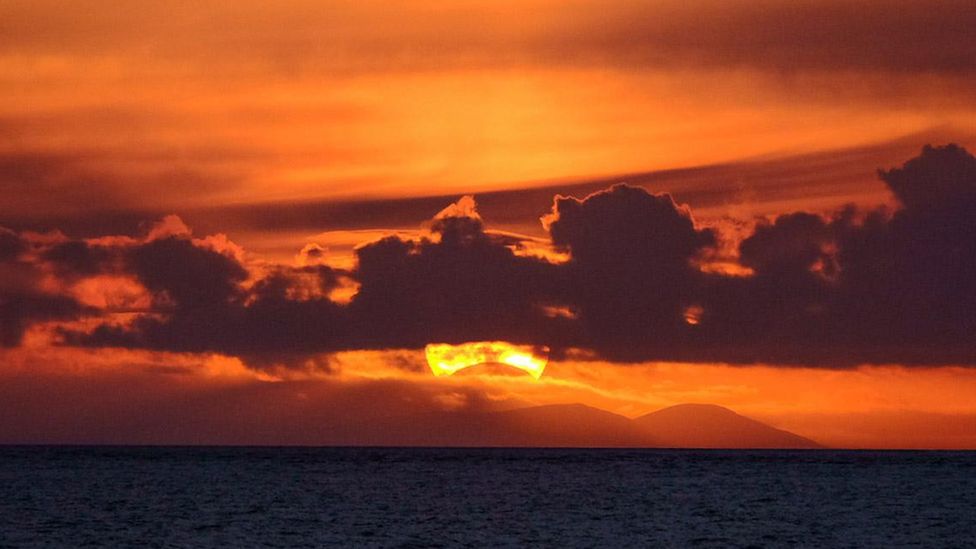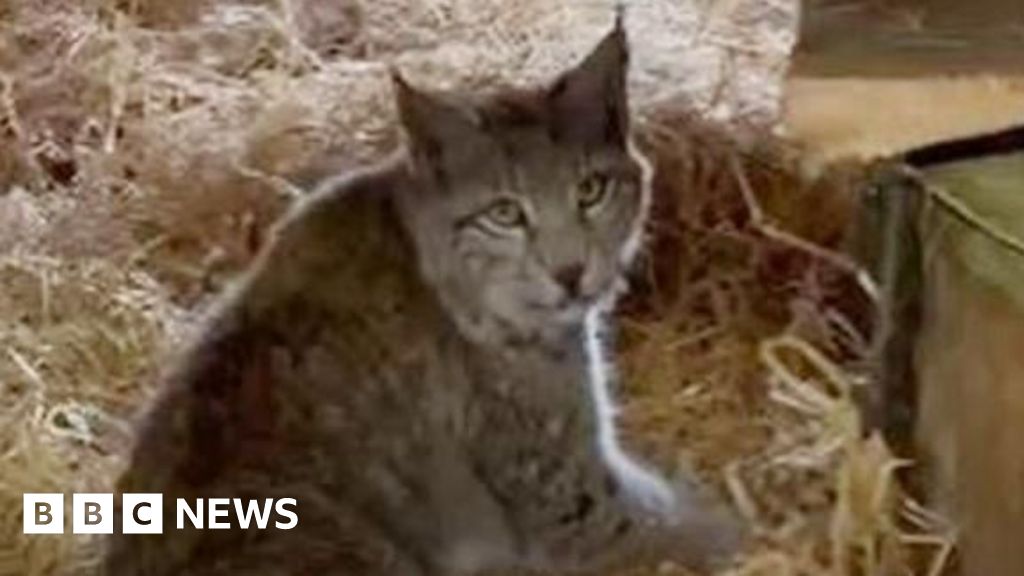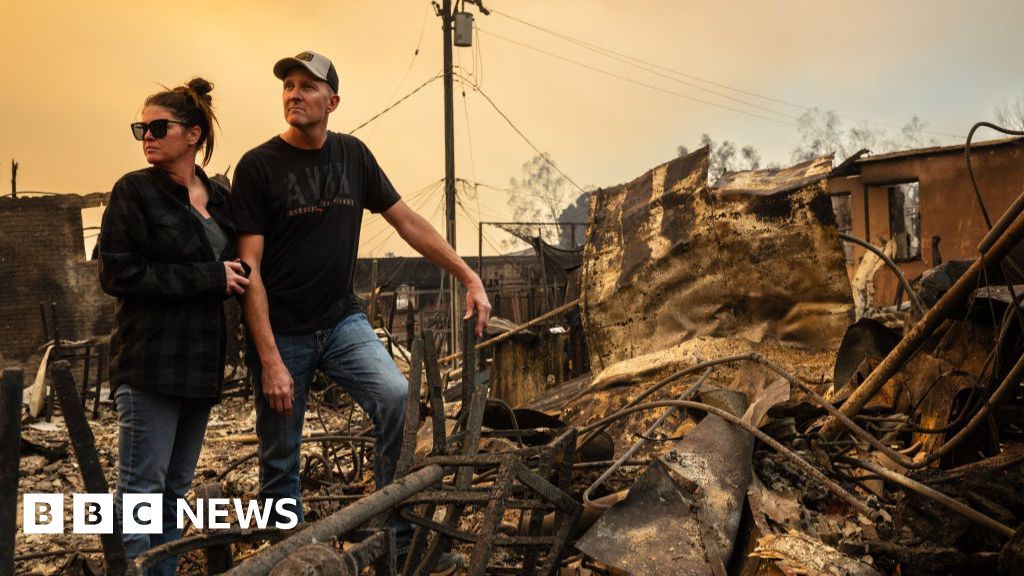 Image source, BBC Weather Watchers/ Elizabeth
Image source, BBC Weather Watchers/ Elizabeth
A partial eclipse was able to be seen in parts of Scotland
A partial eclipse was seen by very few people in the UK, with most of the country missing the chance to see the phenomenon because of cloud cover.
A solar eclipse - when the Moon passes between Earth and the Sun, obscuring the view of the Sun from Earth - took place on Monday.
Tens of millions of people in the US gathered to view the total eclipse.
In the UK, clear skies in northern and western Scotland meant some could see the Moon obscure part of the Sun.
BBC Weather presenter Simon King said there was too much cloud to see much, or any, of the partial eclipse - which would have otherwise been visible from western parts of the UK from 19:55 BST until sunset.
"However, there was always a chance in northern and western Scotland of some clearer spells and that's where at least a couple of our BBC Weather Watchers were able to capture a partial eclipse," he said.
BBC Weather Watcher Elizabeth managed to photograph the Moon blocking part of the Sun as it was setting in Gairloch, in the Highlands of Scotland, while fellow Weather Watcher Callum P captured the phenomenon over the Orkney Islands.
Image source, BBC Weather Watcher/ Callum P
Image caption,A small portion of the Sun was obscured by the Moon as it was setting over the Orkney Islands
Met Office forecaster Simon Partridge added: "The chances are most of England and Wales probably wouldn't have seen it anyway."
On social media, Britons shared pictures of solid grey clouds overhead, with some joking and calling the view "breathtaking" and "beautiful".
One man called Lewis, based in Castlederg, County Tyrone, told the BBC he was in a favourable spot to see the partial eclipse but there was "naff all to be seen".
"We took a quick drive to some higher ground after work to make the most of the cosmic event," he said. "It's safe to say we saw an utterly jaw-dropping set of cloud formations."
Image source, BBC Weather Watchers/GranniAnne
Image caption,"No sign of Eclipse , unfortunately": A BBC Weather Watcher sent in this picture of the clouds over Dundonald, Co Down in Northern Ireland
Image source, BBC Weather Watchers/Foggy B
Image caption,"Pembrokeshire Eclipse - so near but so far!" said this Weather Watcher
But Prof Don Pollacco, from the department of physics at the University of Warwick who travelled to Texas to view it, said British spectators did not miss much because "partial eclipses are really boring" anyway.
"I wouldn't bother watching any partial eclipses - I think they're a waste of time," he said.
He described total eclipses as "very magical", adding: "I'm a scientist, and I'm saying it's magical."
In Mexico, the US and Canada, many were treated to a truly breathtaking display of the Sun's outer atmosphere, or corona, which is usually obscured by its own intense glare.
People gathered in groups, welcoming the moment with choruses of claps and gasps.
Louis Boulet, who watched the eclipse from the other Cornwall in eastern Canada, described it as "a mixture of cosmic beauty and terror".
The next total solar eclipse visible from the UK will not be for another six decades, in 2090. The last one was in 1999.
However, a near total eclipse is expected in 2026, with about 90% of the Sun being obscured by the Moon.
Watch: Stunning images of the total solar eclipse crossing North America
 (1).png)
 9 months ago
13
9 months ago
13


















